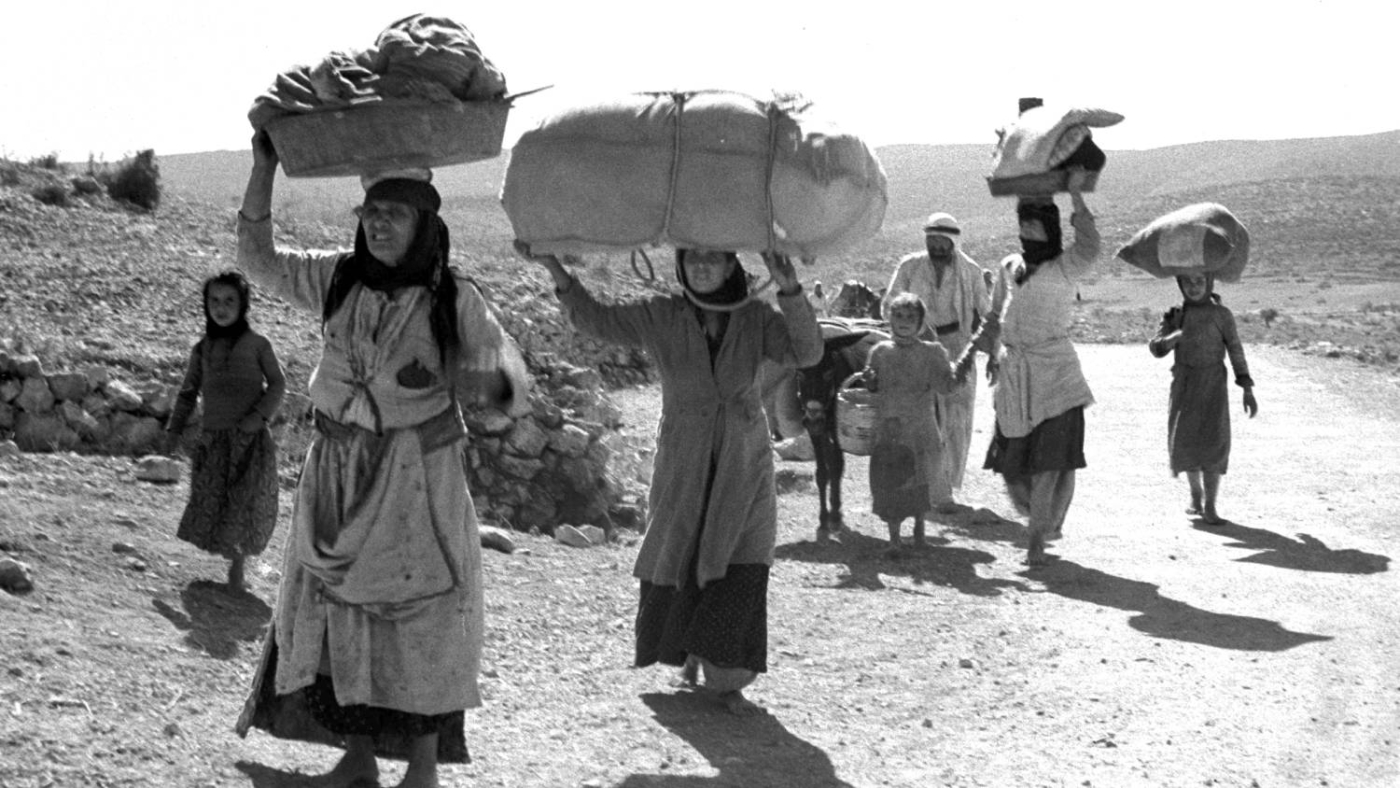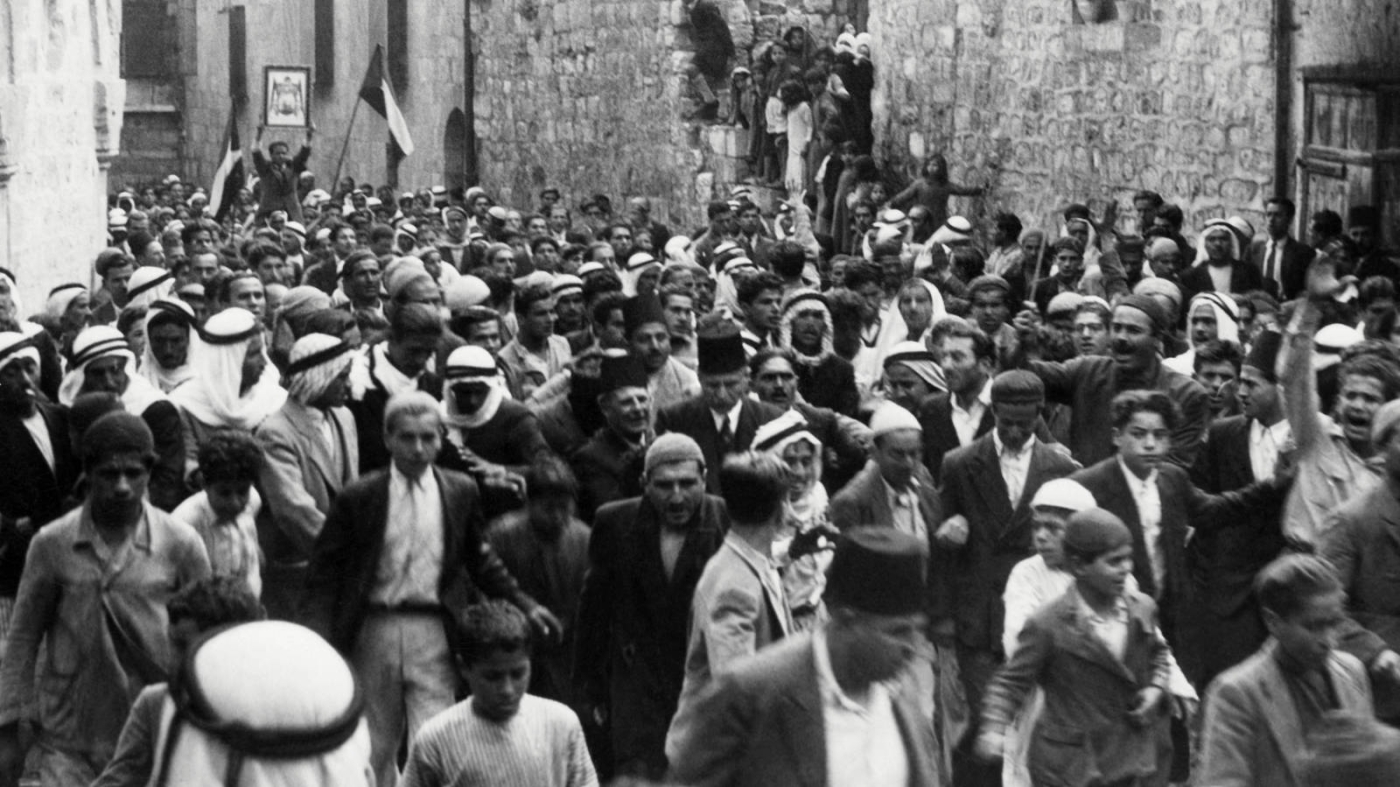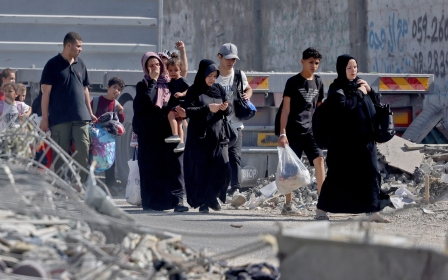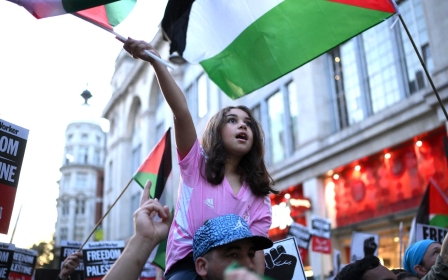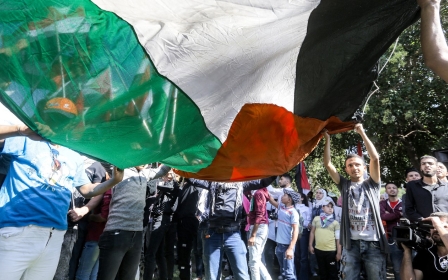Israel-Palestine war: Scores killed in Israeli air strikes on families fleeing northern Gaza

Scores of people, mainly women and children, have been killed in multiple Israeli air strikes on the main road connecting north and south Gaza, as Palestinians carried out an Israeli order to flee their homes.
According to the Palestinian Ministry of Health, at least 70 people have been killed in three separate air strikes on the road, with the latest killing at least 40.
The Israeli army said in a statement on Friday that civilians must leave Gaza City in the north, and that they would not be allowed to return "until we say so" and until "a statement is issued allowing this".
However, locals have reported a number of attacks on the Salah al-Din Road since then. Survivors, speaking to local media, implored others not to make the journey for fear of being targeted by the Israelis.
"Do not leave," a distraught survivor of the attacks told local media.
New MEE newsletter: Jerusalem Dispatch
Sign up to get the latest insights and analysis on Israel-Palestine, alongside Turkey Unpacked and other MEE newsletters
"They bombed the convoy. They bombed it on Salah al-Din Road. They bombed the ambulances."
Another survivor said the attacks were a "direct targeting of women and children".
"I was in the truck. There were about 200 people. 90 percent were women and children. We took the main road that the entire world knew we were taking. My entire family were with me.
"Out of nowhere, they dropped a bomb. Everything was black and I lost conscience for 10 mins," they told local media.
Follow Middle East Eye's live coverage for the latest on the Israel-Palestine war
"When I woke up I saw a mother lying with her baby, whose brain was right next to him. I heard the ambulances then they bombed again.
"I took cover and after a few minutes tried to check the damage, then they bombed again."
Palestinians from the north of Gaza have already been displaced in recent days by Israel's bombing campaign.
MEE’s correspondent Maha Hussaini has already left her home in the north following the orders of forced removal.
Another MEE reporter on the ground said that it currently "looks like a second Nakba" or catastrophe in Arabic, and that "many families are now leaving their homes".
What is the Nakba?
+ Show - HideThe Nakba is one of the key events in modern Middle East history and one that has come to define the Israeli-Palestinian conflict ever since.
Also known as "The Catastrophe", it began in late 1947 and 1948, as the new state of Israel came into existence.
Palestine was part of the Ottoman Empire for hundreds of years until it was captured by the UK at the end of World War One (1914-18).
The League of Nations - a forerunner of the UN - gave Britain a "mandate" over Palestine after the war, which did not take into account the wishes of the native Palestinian population.
The aim of such mandates was to bring about "the rendering of administrative assistance and advice" to native populations until they were deemed capable of standing alone as independent states.
What was the problem?
The British Mandate incorporated the Balfour Declaration, sent by Arthur Balfour, the British foreign secretary, to Lord Walter Rothschild, a prominent member of the British Jewish community, in 1917.
It pledged to establish "in Palestine a national home for the Jewish people", who made up less than 10 percent of the population at the time.
During the mandate years (1923-48), the UK facilitated the immigration of European Jews to Palestine, increasing their population 10-fold, from 60,000 in the pre-Mandate era to 700,000 by 1948.
They also trained, armed and supplied Zionist groups, and allowed them a degree of self-governance.
In contrast, the native Palestinian population, which rejected European Jewish immigration and called for independence, was violently suppressed.
The number of Jews arriving in Palestine from Europe and elsewhere increased in the wake of the Holocaust, which systemically targeted Jews and others, resulting in the deaths of more than 6m people.
In February 1947, Britain announced it would terminate the mandate and turn the question of Palestine over to the newly formed United Nations.
The UN adopted a partition plan in November 1947, which divided Palestine into two parts: 55 percent would form a Jewish state, while 45 percent would create an Arab state. Jerusalem would be kept under international control.
But many argue that the plan did not take into account populations at the time.
In addition, Jewish paramilitary groups produced a strategy to control the borders of the new territory, called Plan Dalet (below).
Some of their members would go on to become key Israeli leaders, including Yitzhak Rabin (prime minister 1992 - 1995), Ariel Sharon (prime minister 2001 - 2006) and Moshe Dayan (minister of defence 1967 - 1974).
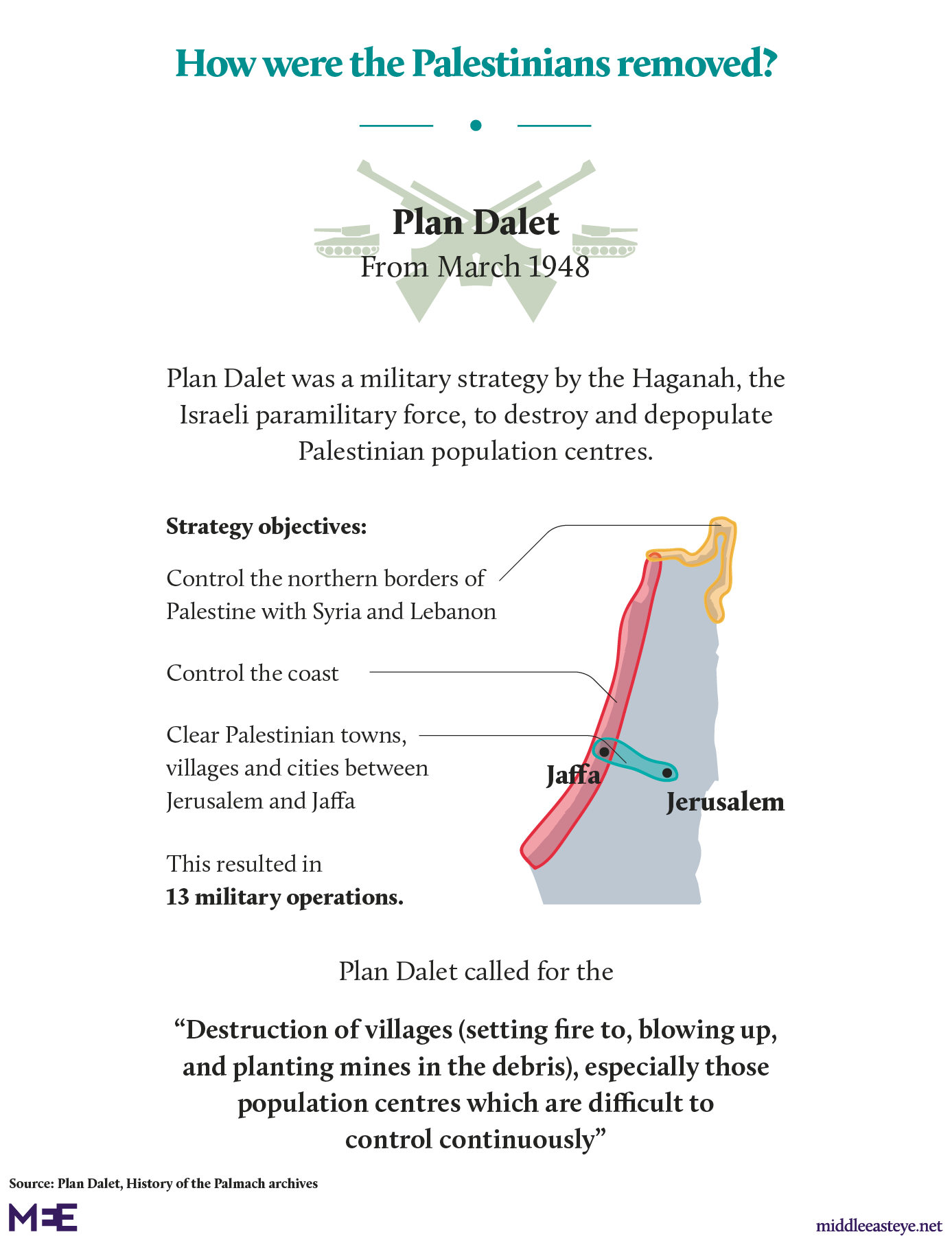
In the weeks and months that followed, thousands of Palestinians were killed or driven from their homes and communities uprooted by Jewish paramilitary groups.
Jews were also killed by Palestinian groups, if not in the same numbers.
On 14 May 1948, the State of Israel was unilaterally declared, a day before the British Mandate officially expired.
The new state had increased its share of historic Palestine from 55 percent to 78 percent. The remaining 22 percent was under Arab control.
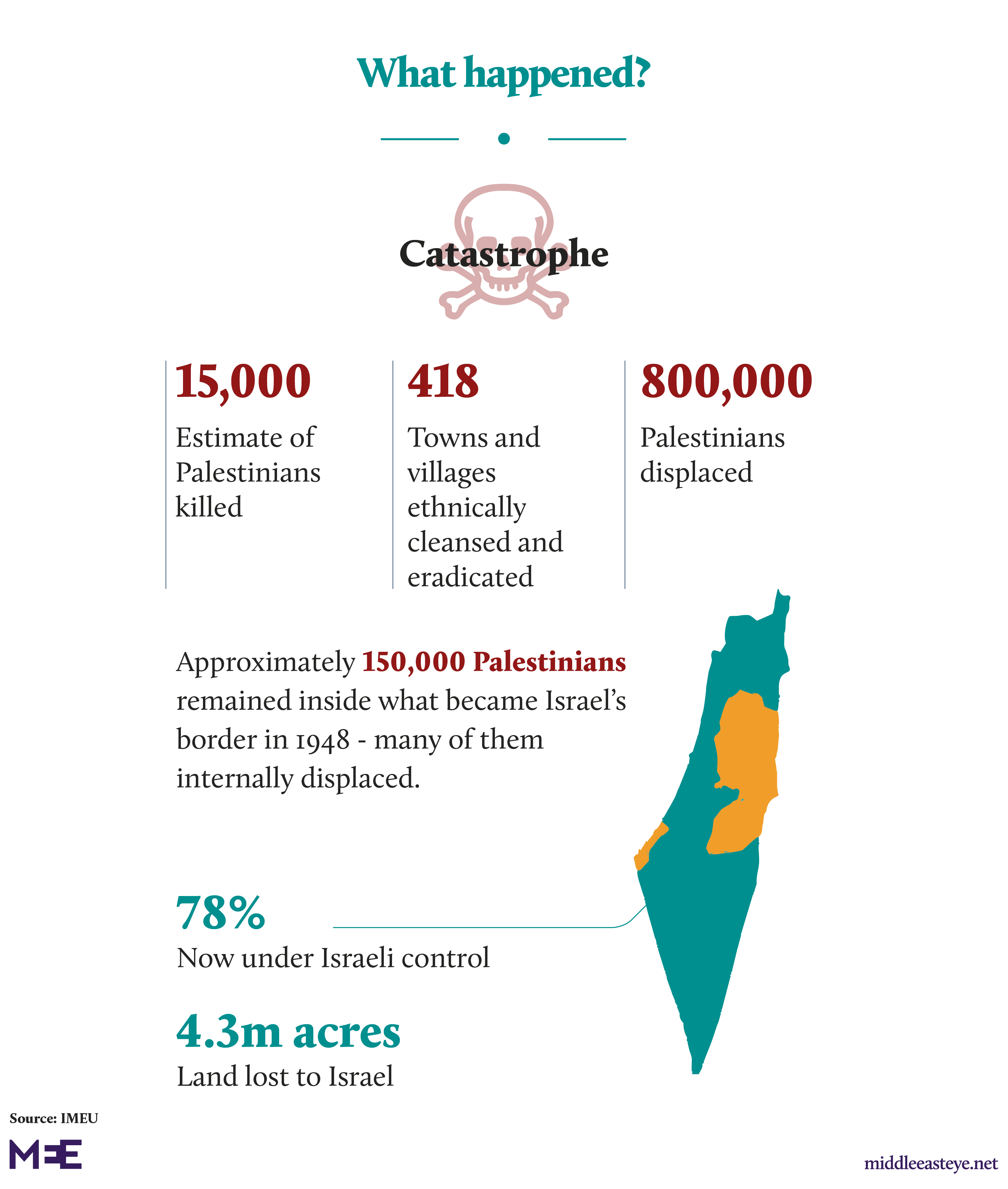
Many of the Palestinians who fled or were driven from their homes never returned to historic Palestine. Much of it is now the modern-day state of Israel.
More than 70 years later, millions of their descendants live in dozens of refugee camps in Gaza, the West Bank, and surrounding countries, including Jordan, Syria, and Lebanon.
Many still keep the keys to the homes that they and their families were forced to leave.
Nakba Day is now a key commemorative date in the Palestinian calendar. It is traditionally marked on 15 May, the date after Israeli independence was proclaimed in 1948.
Some Palestinians also observe it on the day of Israeli independence celebrations, which itself changes from year to year due to variations in the Hebrew calendar.
The United Nations called on Israel to call off the evacuation order.
"The United Nations considers it impossible for such a movement to take place without devastating humanitarian consequences," said Stephane Dujarric, spokesperson for the UN secretary general.
“The United Nations strongly appeals for any such order, if confirmed, to be rescinded, avoiding what could transform what is already a tragedy into a calamitous situation.”
The World Health Organisation has said that Israel, in forcing severely ill people in Gaza, including those on life support, to move, amounts to a “death sentence”.
Hamas launched a surprise multi-front assault on Israeli communities on Saturday, firing thousands of rockets and sending fighters into Israel across land, air and sea. More than 1,300 Israelis have been killed, and over 100 people were taken captive into Gaza.
Israeli forces have responded by raining down a barrage of air strikes on the Gaza Strip this week, killing at least 1,799 people, most of them women and children.
The forced evacuation calls come as Israel amassed tanks near the boundary with Gaza ahead of an expected ground invasion of the enclave - the first such incursion in over nine years.
Middle East Eye delivers independent and unrivalled coverage and analysis of the Middle East, North Africa and beyond. To learn more about republishing this content and the associated fees, please fill out this form. More about MEE can be found here.


